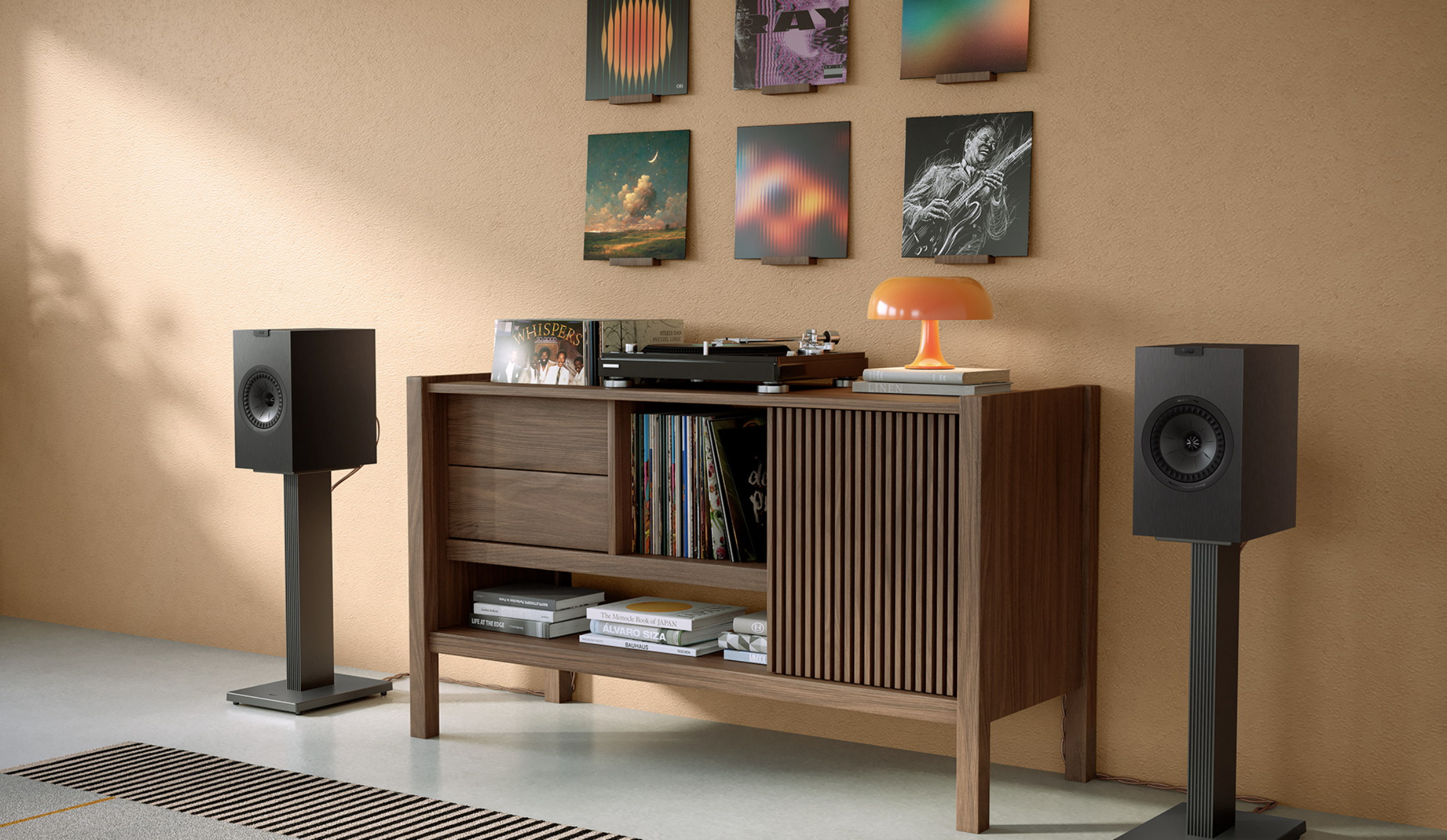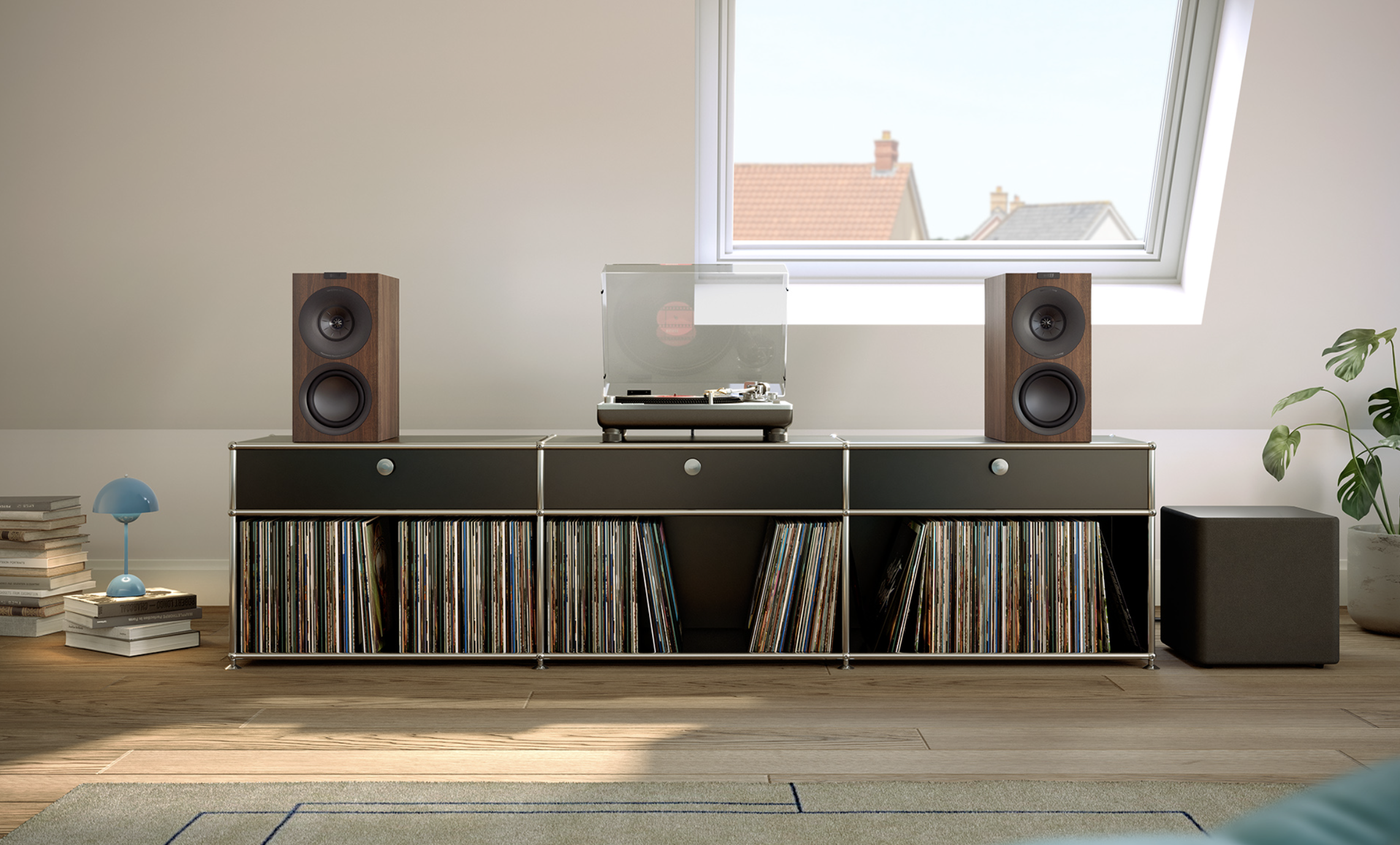KEF's leveled-up speaker range now includes MAT – and yes, we are going to tell you what that is
The eight-strong new Q Series adds a fresh acronym to those Uni-Q drivers

It's been a great week for new acronyms in the world of hi-fi. First, Audeze introduced SLAM to electrostatic headphones; now KEF's bringing you MAT – no, this isn't WWE Smackdown, it's the gentle world of high fidelity, we promise.
The thing is, KEF has been toiling away on leveling-up the way we experience sound for over 60 years, releasing not only some of the best stereo speakers we've heard but also some the best wireless speakers we've ever tested (see our KEF LS50 Wireless II review for our favorite wire-free model), so when KEF unveils an eight-strong new Q Series, you should take a moment to learn about what the company's doing if you care about music.
This latest 12th-generation Q Series features Metamaterial Absorption Technology (MAT), and KEF tells us it is pivotal to the new Q Series. What is it? MAT is a "highly complex maze-like structure, in which each of the intricate channels efficiently absorbs a specific frequency". When combined, these channels act as an "acoustic black hole, absorbing 99% of the unwanted sound" according to KEF.
In speakers, "unwanted sound" refers to the fact that a driver blasting sound out of the front generates a force backwards as well (AKA Newton's third law). Speakers are designed to absorb this force as much as possible, because it can create sound that interferes with what you're supposed to hear. This is a new approach to solving that problem.
MAT is found in all eight models in the new Q Series lineup, which is designed for both traditional stereo systems or multi-channel home theater. You'll also find the company's Uni-Q driver array throughout the series, although it has been redesigned to maximize the performance improvements that MAT delivers – chiefly with a re-engineered tweeter gap damper that strategically places two rings of porous material to tame any resonances and imperfections. The ultimate aim? A speaker that delivers more transparent and lifelike audio than ever before.
MAT matters

There are eight distinct models in the Q Series range, so let's get to it. First up, two three-way floor-standing models (the Q11 Meta and Q7 Meta). Then, a selection of bookshelf speakers, including the three-way Q Concerto Meta (the first three-way bookshelf speaker in the Q Series and revival of the classic KEF Concerto 1969) plus the compact Q3 Meta and Q1 Meta models. There's also a Q4 Meta, the first on-wall speaker in the Q Series range, which can be used as an LCR (left, center, right) or surround speaker, for a home theater solution that won't take up any floor space. The new Q6 Meta can also be used in an LCR configuration, and finally the Q8 Meta can be placed upon another main speaker for Dolby Atmos height, bringing Dolby Atmos to your system with an integrated wall-mount feature.
Should you wish to dial up the bass for a fully immersive listening experience, KEF would likely direct you to pair the Q Series with its own KEF subwoofers for even more low-end clout.
Sign up for breaking news, reviews, opinion, top tech deals, and more.
The Q Series speakers are available in Satin Black, Satin White, and Walnut finishes with carefully selected color driver units. Dedicated grilles with magnetic fixings are included, providing the option to protect the drivers if children or pets are present.
Availability? Of course.
● Q Concerto Meta – Available now (from September 26), as part of myKEF’s member early access exclusive
● Q11 Meta, Q7 Meta, Q3 Meta, Q1 Meta, Q6 Meta, Q8 Meta – Available from October 10th
● Q4 Meta, SQ1 Floor stand, PQ1 Plinth Spike Kit – Available from winter The collection will range from $600-$2,200:
● Q1 Meta - $600 / £499 per pair
● Q3 Meta - $800 / £649 per pair
● Q Concerto Meta - $1,300 / £1,099 per pair
● Q6 Meta - $800 / £699 each
● Q7 Meta - $900 each / £1,399 (listed per pair in UK)
● Q11 Meta - $1100 each / £1,999 (listed per pair in UK)
● Q8 Meta - $800 / £599 per pair
● Q4 Meta - $500 / £349 each
Australian prices are not yet known, but taking these figures as a rough estimate, prices should start from around AU$679 for the Q4 Meta, up to AU$3,885 for a Q11 Meta pair.
You may also like

Becky became Audio Editor at TechRadar in 2024, but joined the team in 2022 as Senior Staff Writer, focusing on all things hi-fi. Before this, she spent three years at What Hi-Fi? testing and reviewing everything from wallet-friendly wireless earbuds to huge high-end sound systems. Prior to gaining her MA in Journalism in 2018, Becky freelanced as an arts critic alongside a 22-year career as a professional dancer and aerialist – any love of dance starts with a love of music. Becky has previously contributed to Stuff, FourFourTwo and The Stage. When not writing, she can still be found throwing shapes in a dance studio, these days with varying degrees of success.